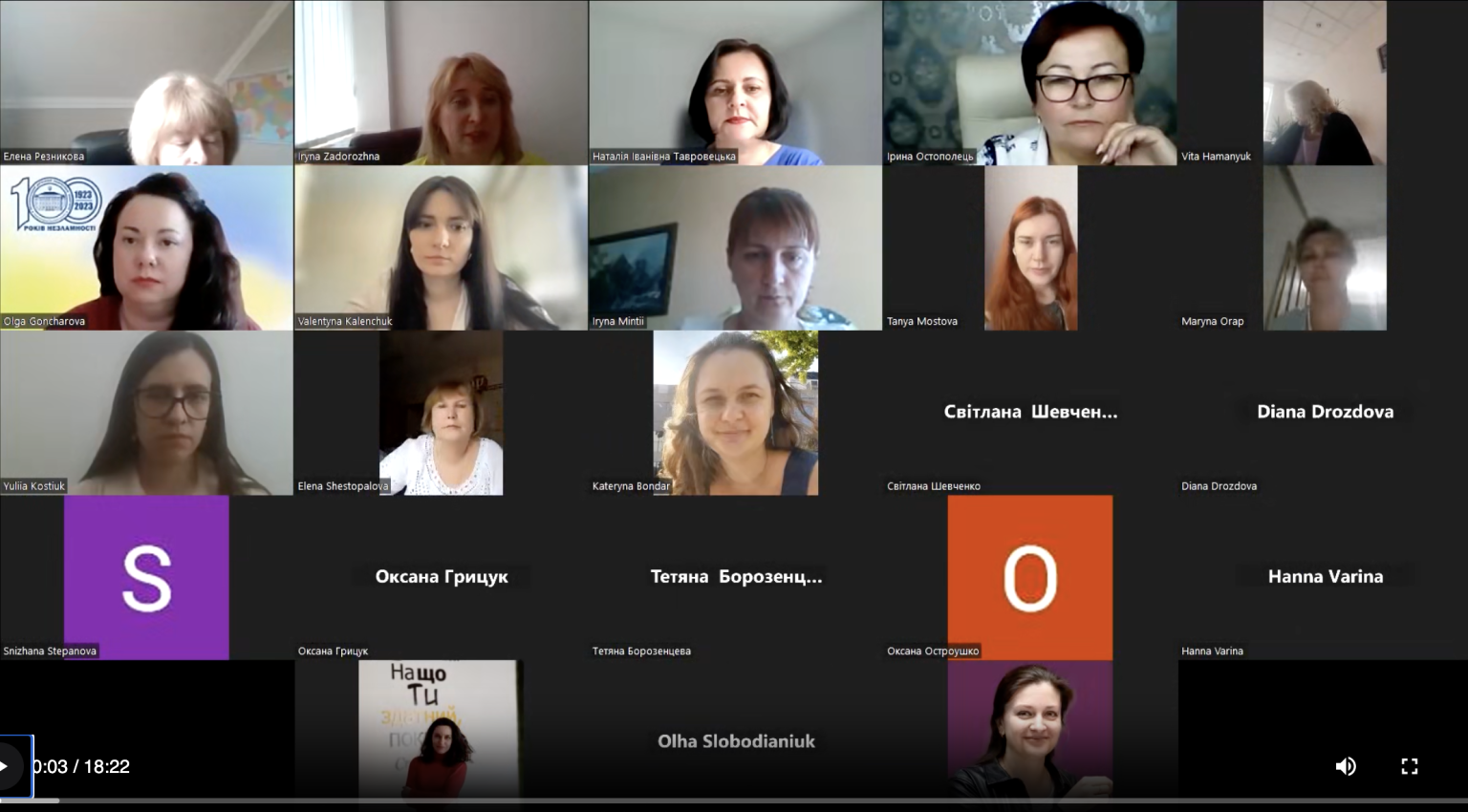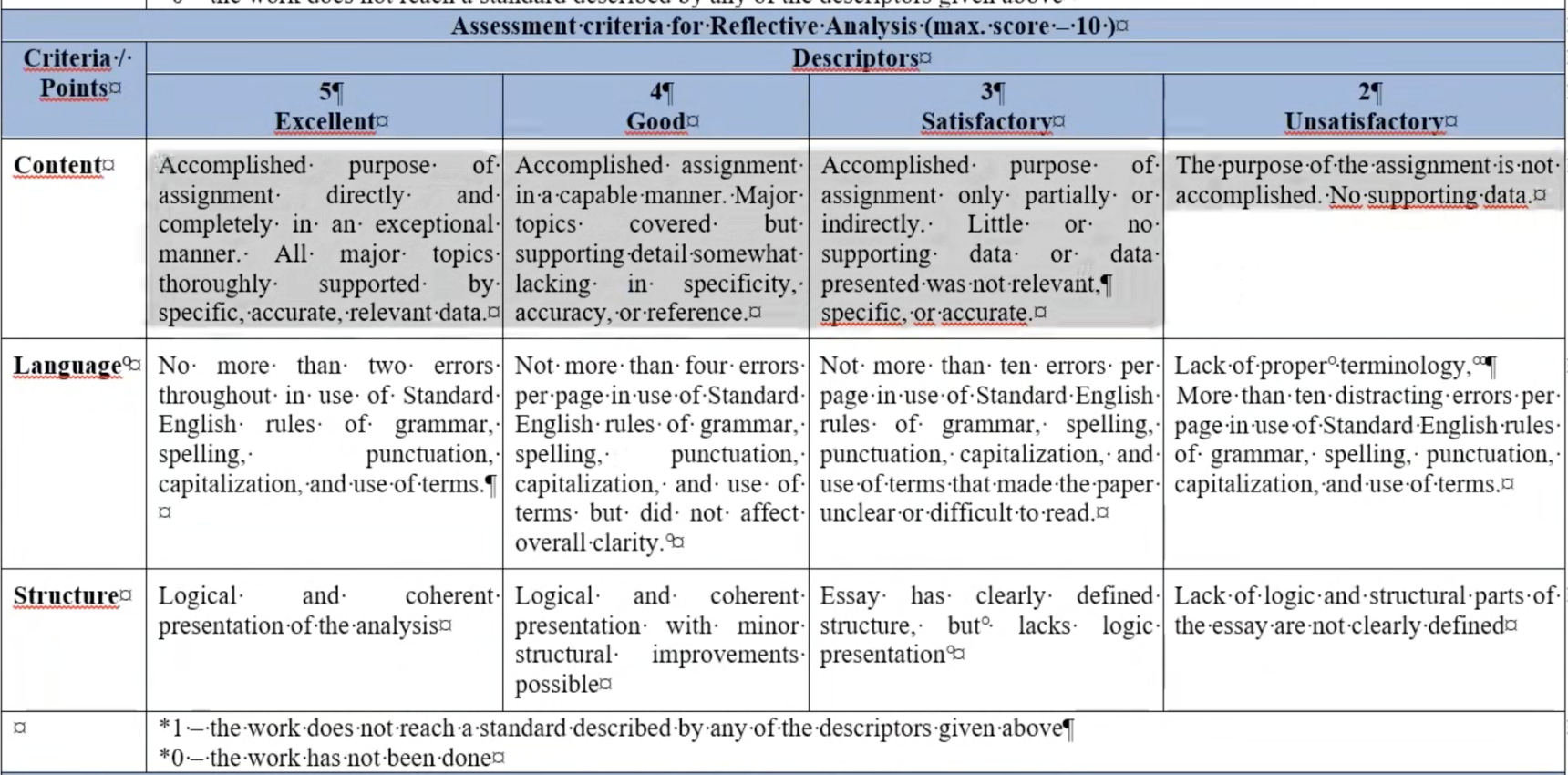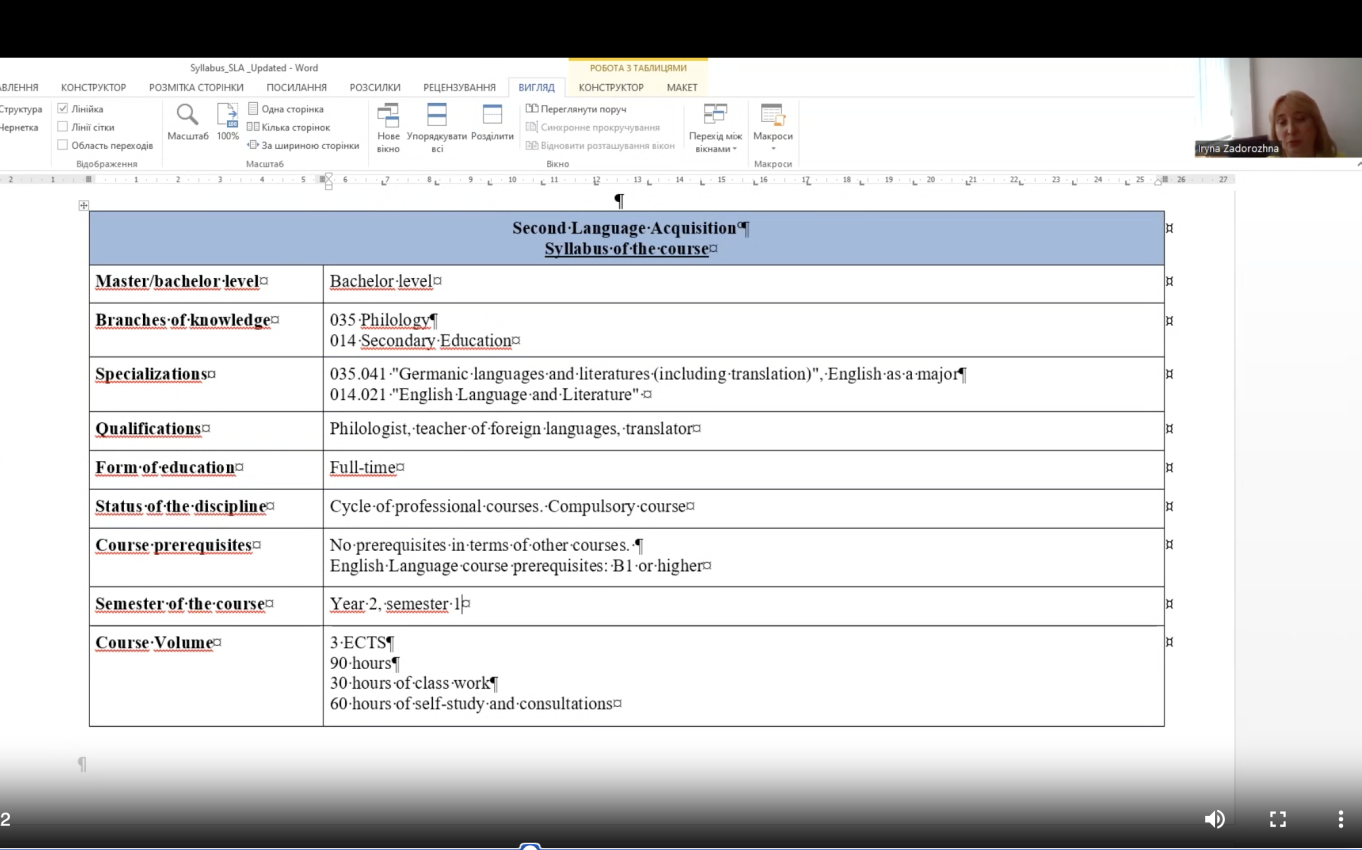The series of webinars on the exchange of experience "Principles of course development in the European Union", which took place from 04/22/2024 to 06/03/2024, has ended. Experts in the development of work training programs from partner European universities shared their experience in implementing educational disciplines that are directly related to the psychological support of participants in the educational process, especially in times of crisis. All training participants were registered on the MOODLE platform of the University of Tartu, where the trainers posted all the main and supporting materials, their presentations, and, for convenience, webinar recordings.
Concise content of the webinars:
22.04.2024 Webinar 1. Estonian experience in the development of the curriculum of the discipline
The speaker from the University of Tartu, Anu Leuska, shared advice on creating a free-choice discipline for students of pedagogical specialties "Introduction to Crisis Intervention" for 3 ECTS for three levels of education - bachelor's, master's and doctoral.
The speaker emphasized that first the goals and objectives of the course, learning outcomes are formulated, and then the content is planned. The idea of introducing the course "Introduction to crisis intervention" arose during the period of COVID-19, when humanity faced such global problems as isolation, mental health problems. In general, human mental health is deteriorating. Despite the fact that people are actively discussing this problem, it is becoming more and more acute. Also, another aspect is the issue of war, here educators must know how to support students. Teachers do not have enough knowledge about how to spot and support a child in crisis, but the teacher is often the first person to notice a problem. Students as future teachers need knowledge about crisis intervention, which can be expressed in various situations, for example: accidents, divorce, loss of loved ones, grief. In addition, teachers should think about their own mental health, how to reduce stress, etc. This is the main idea for the course.
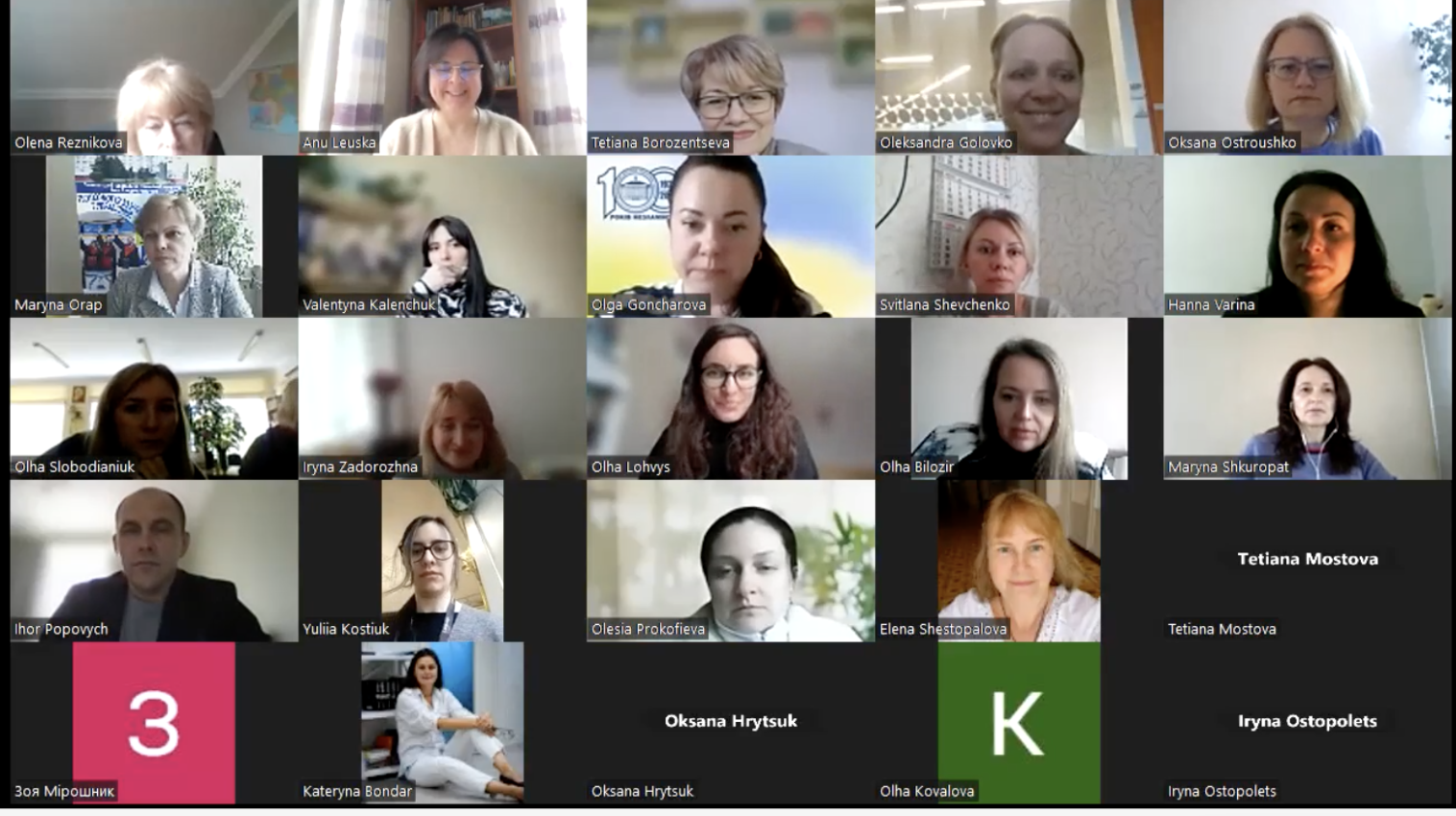
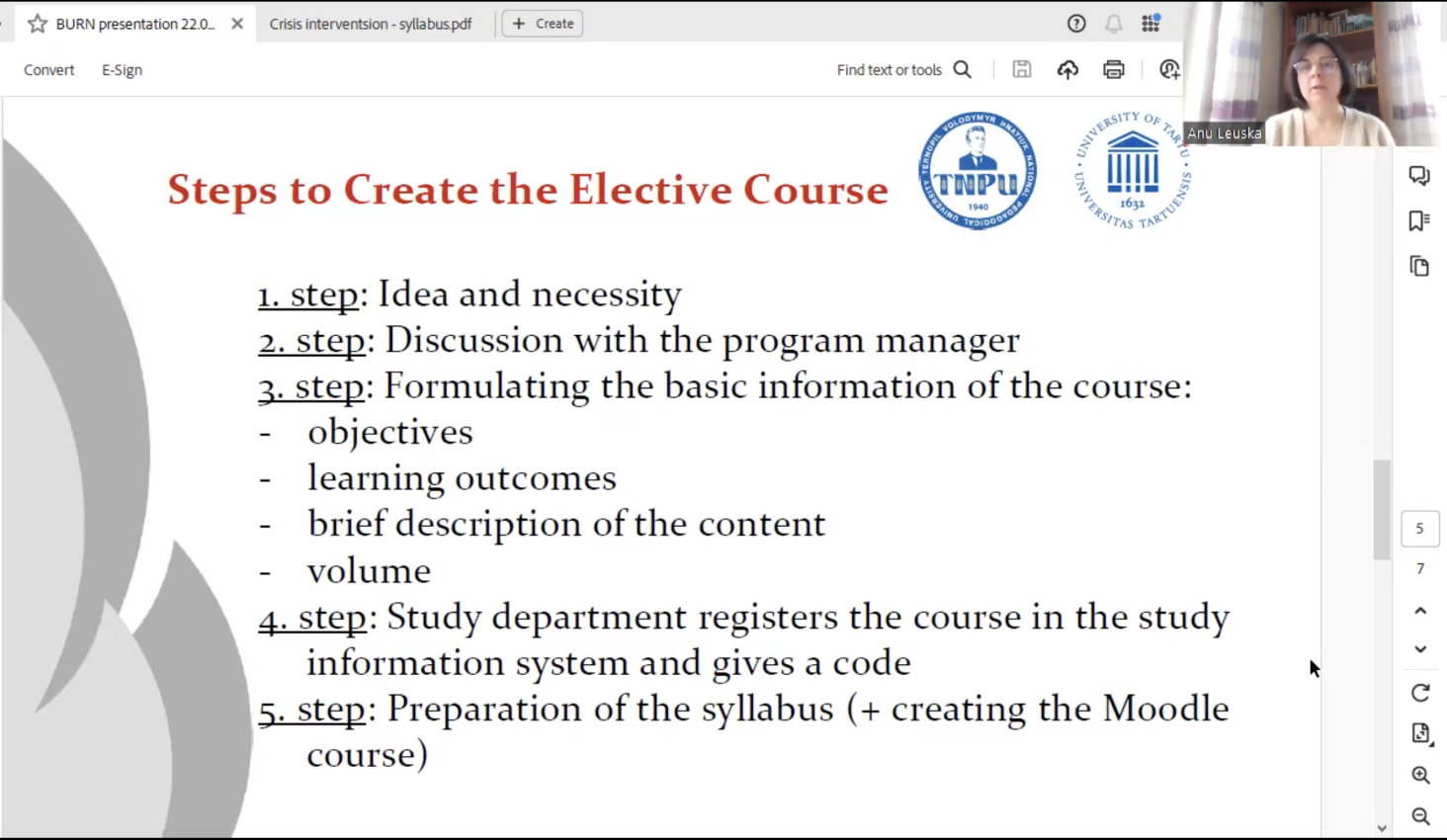
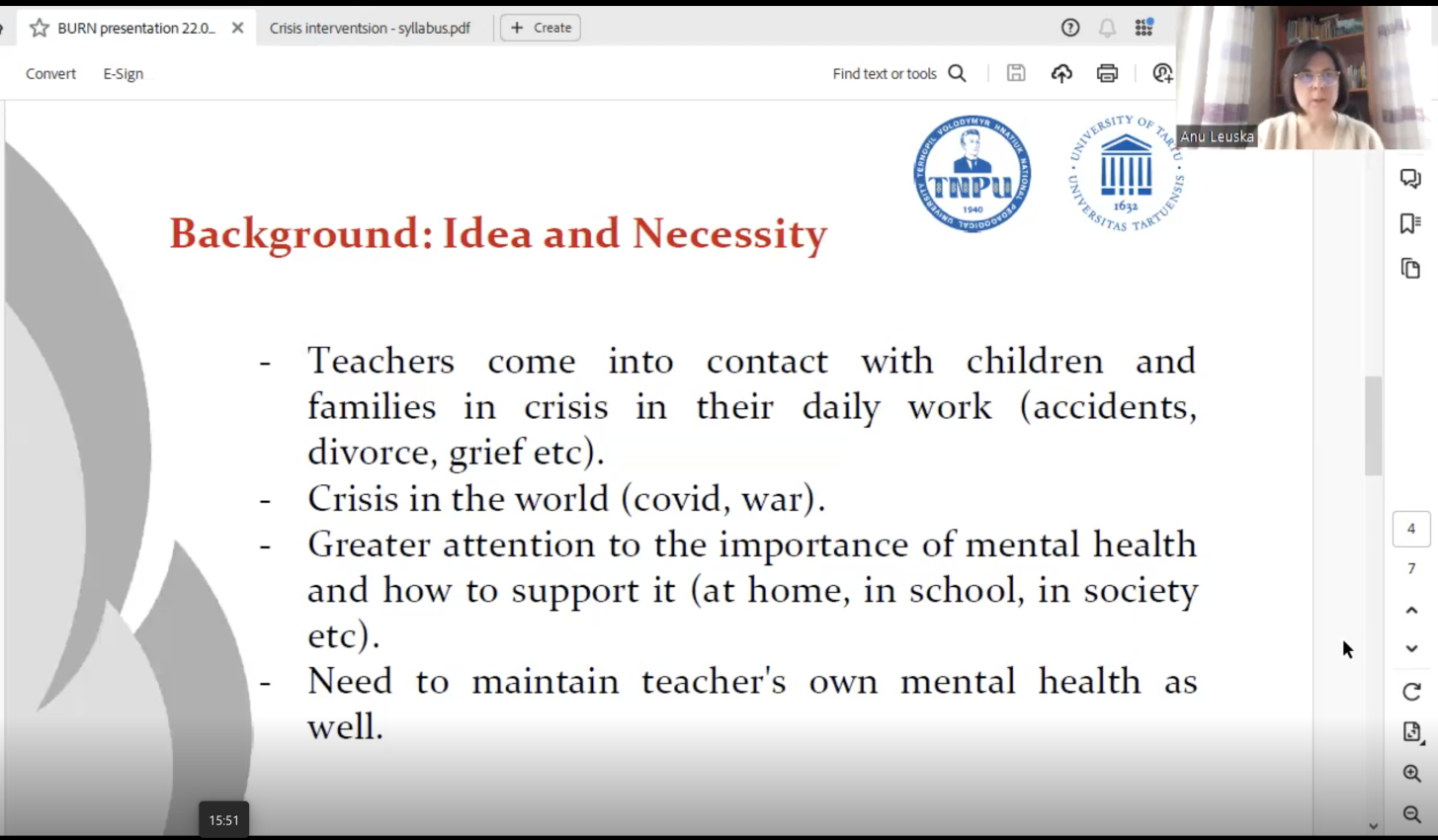
29.04.2024 Webinar 2. Latvian experience in the development of the curriculum of the discipline
Speaker Anda Upmane from the University of Latvia told the story of the creation of the educational program in psychology at Riga University, introduced the audience to the legislative documents that regulate educational activities in the field of psychology, the structure and requirements for bachelor's, master's and doctoral educational programs. The trainer also provided an example of a psychology course syllabus, talked about mandatory elements and gave advice to syllabus developers, including: first define the purpose of the course; use action verbs such as "analyze," "synthesize," "evaluate," "apply," "create," "interpret," "compare," "contrast," etc. focus on specific skills and knowledge; ensure relevance and realism; use the SMART approach (learning outcomes should be specific, measurable, achievable, relevant and time-bound); review the formulated results and improve them.

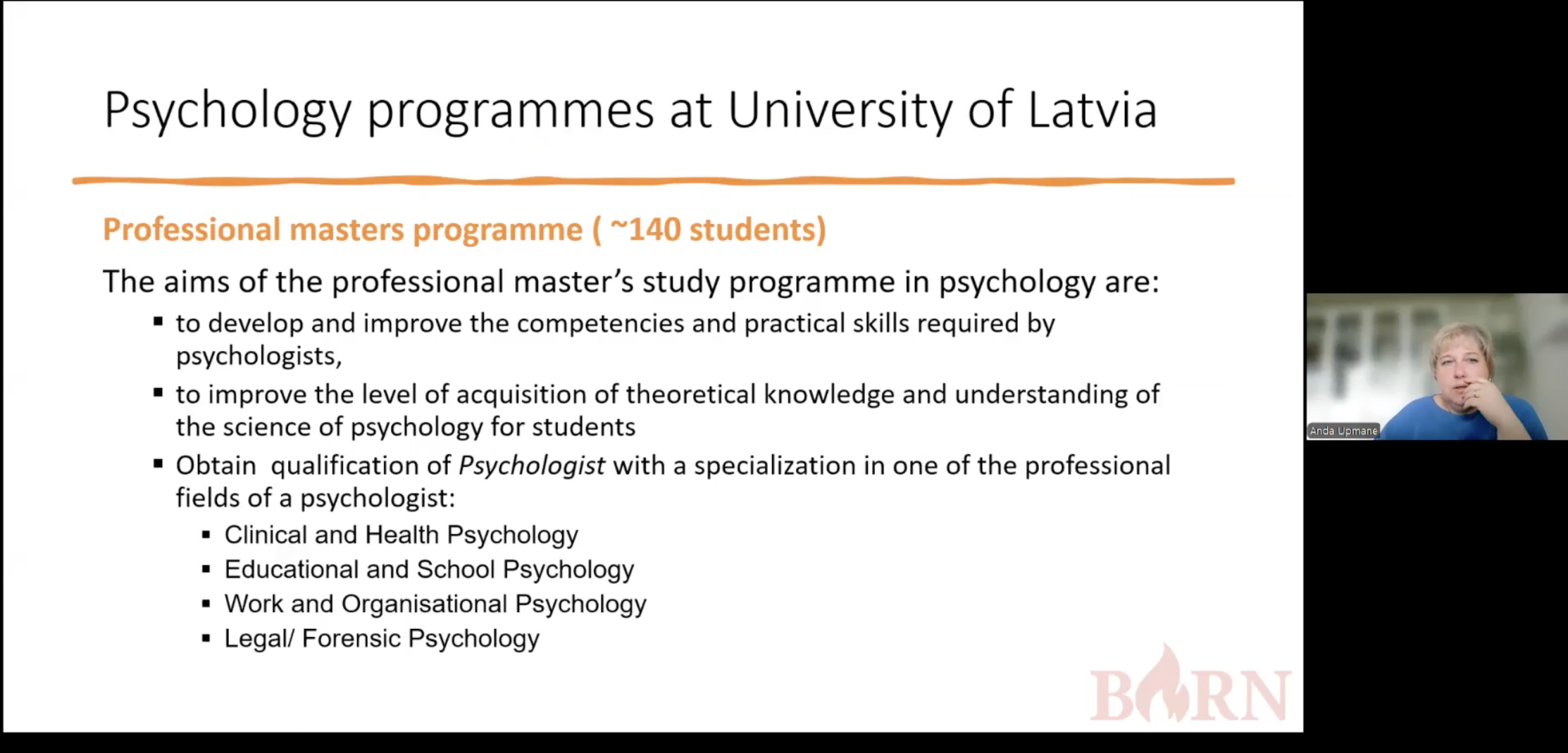
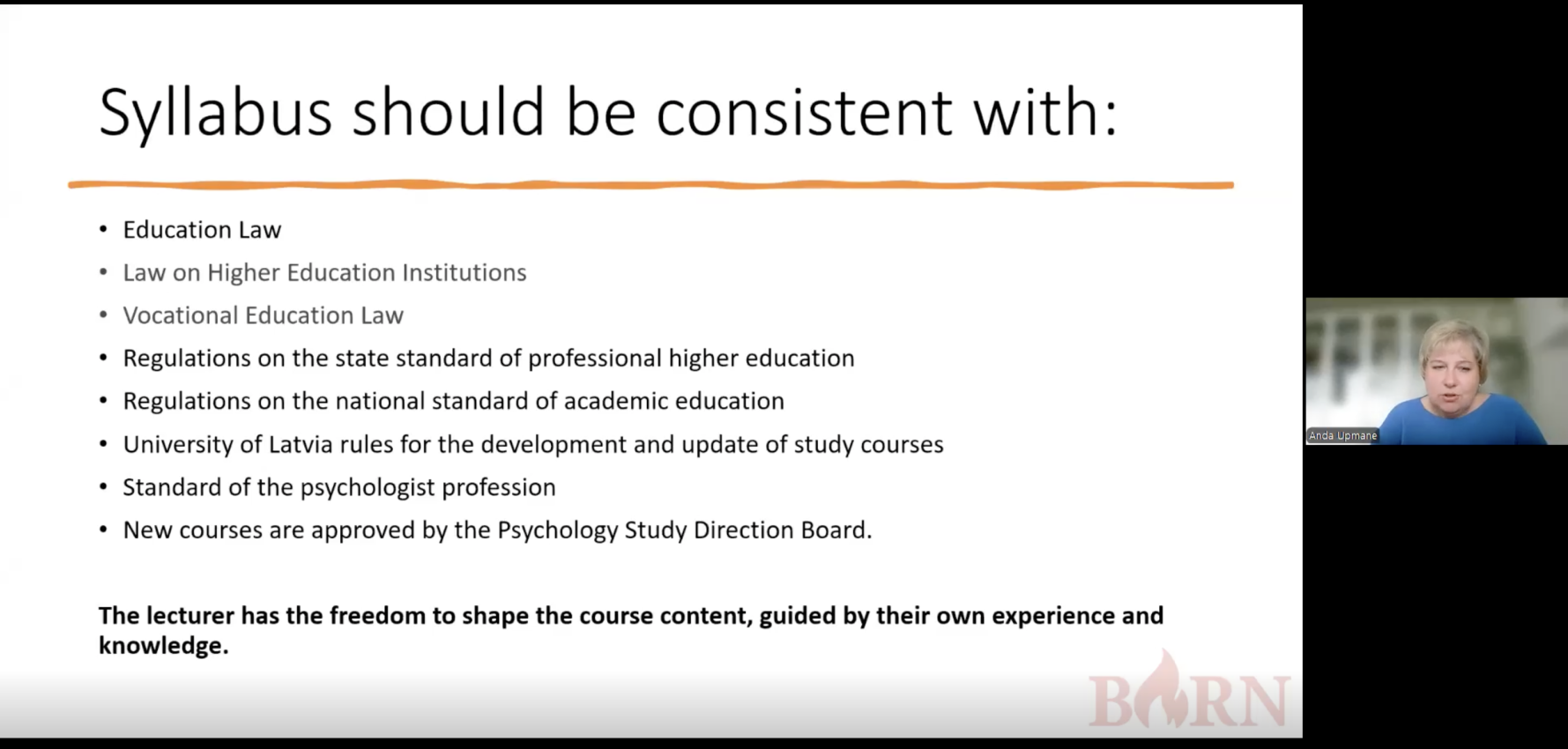
05/07/2024 Webinar 3. German experience in the development of the curriculum of the discipline
The speakers, Phil Langer and Lars Kuchinke, from the International Psychoanalytical University of Berlin, spoke about the place of the German system of psychological education in the international and the need to take into account all international trends in psychological education. The main principle of psychological education is a balance between theory and practice with a bias towards practice.
The syllabus is a means of communication between the student and the teacher, through which the teacher shares expectations and proves his requirements to the students. Feedback is very important - the teacher responds to feedback and comments of students in a timely manner, makes appropriate changes to the content and structure of the course. There are no rules on how to develop a course - everything is at the teacher's discretion. The trainers emphasized the need to carefully write down learning objectives, because learning objectives are not about knowledge, they are about how to use knowledge and how to combine familiar knowledge with new ones. Students are required not only to learn the theory, but also to know how to use it. The trainers suggested formulating learning tasks based on Bloom's taxonomy - memorize, understand, apply, analyze, evaluate, create. Action verbs help formulate Learning objectives.

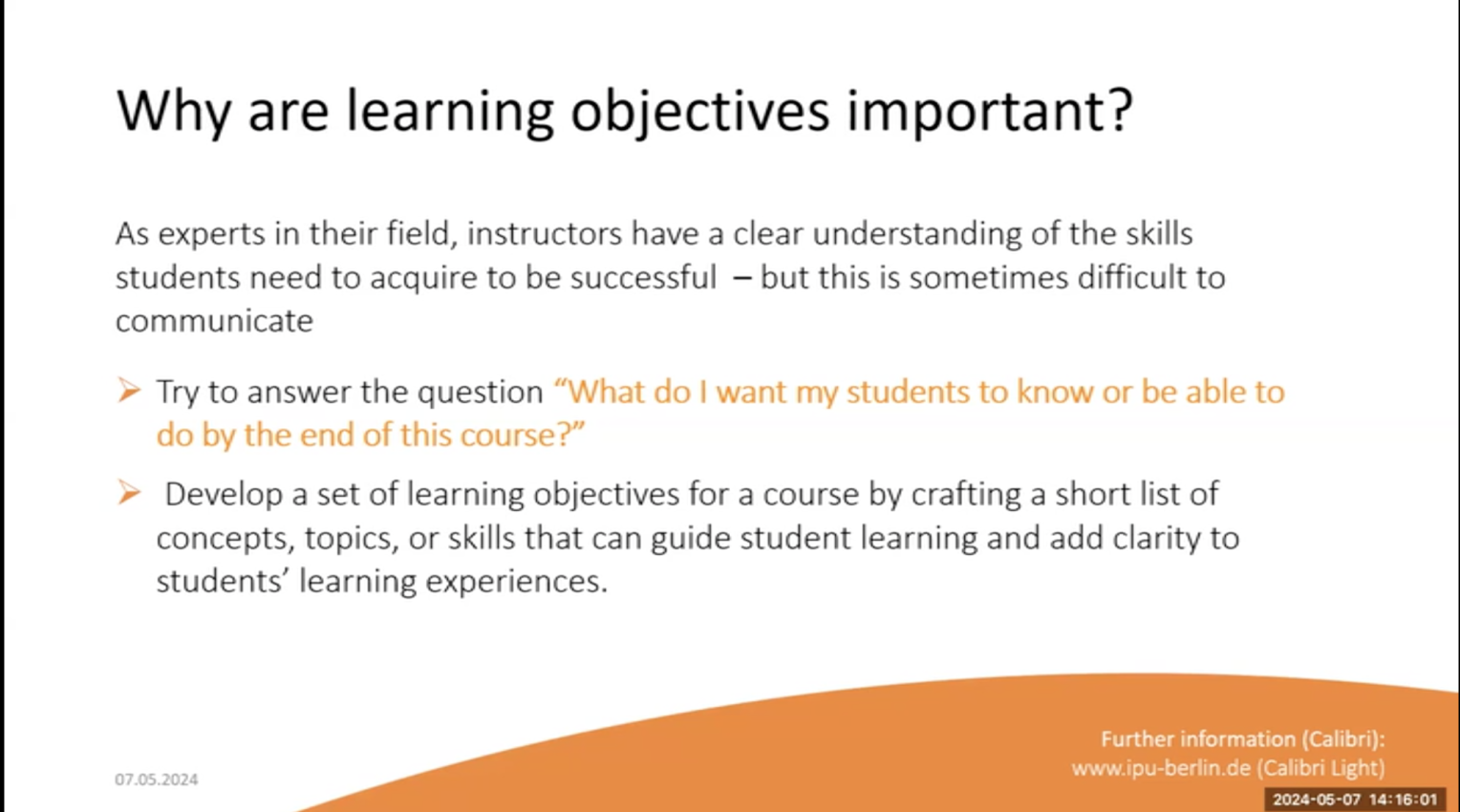
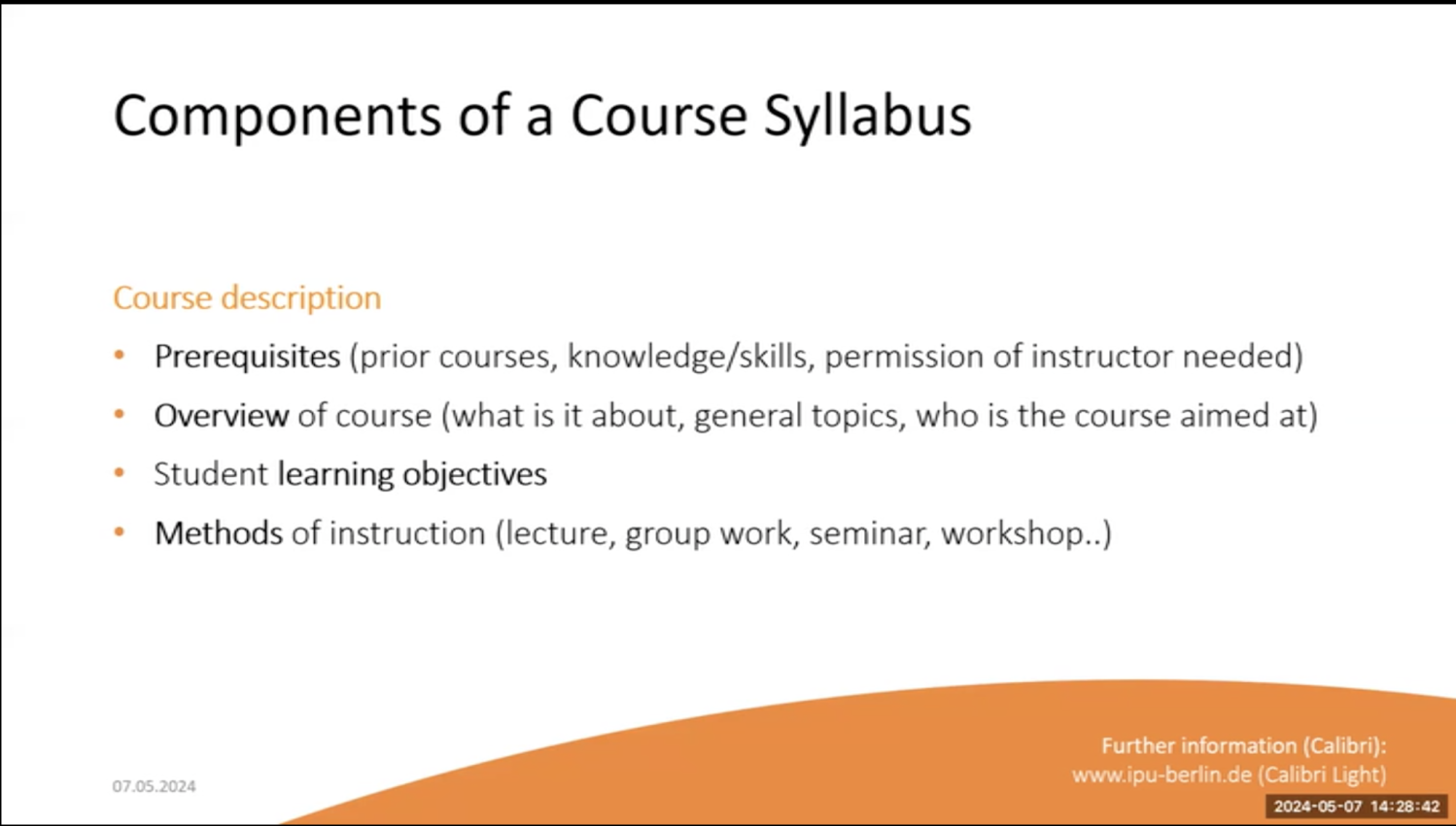
14.05.2024 Webinar 4. Course evaluation strategies at the International Psychoanalytic University (IPU, Berlin)
The speakers were: Vibke Stelling, Head of Accreditation, Documents and Processes and Christine Möllers, Responsible for Assessments, Events and Mentoring Programs. The trainees were introduced to the concept and tools of course evaluation at IPU, which include: the first semester survey and the beginning of the week survey; final online survey of each subject at the end of the semester; course evaluation, formal dialogue between teacher and student; communication with students, group, at the end of the semester; university day, every year - seminars, conversations, ideas for improvement; CHE- rating; survey of graduates; survey of students in Germany. The final evaluation takes place at the end of the semester based on the "Self-Assessment of Competencies of Higher Education", the process of teaching/learning design is discussed; each course is evaluated in the last 2-4 weeks of each semester, online using the "Zensus" portal; results are shared with supervisors and teachers, and teachers communicate with students for improvement; the study committee discusses the results, determines the consequences and results; the report on the assessment of the academic year is published on the website.
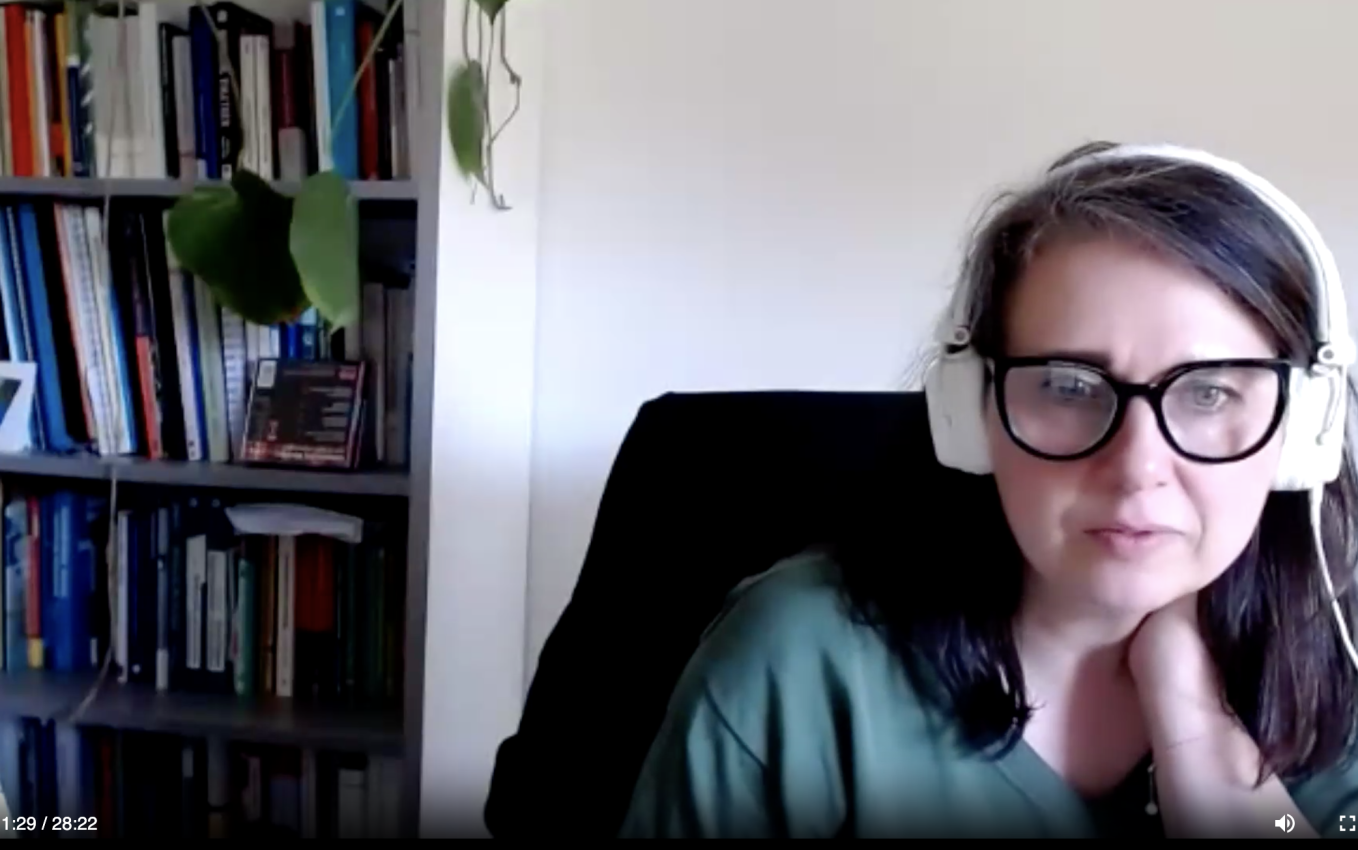

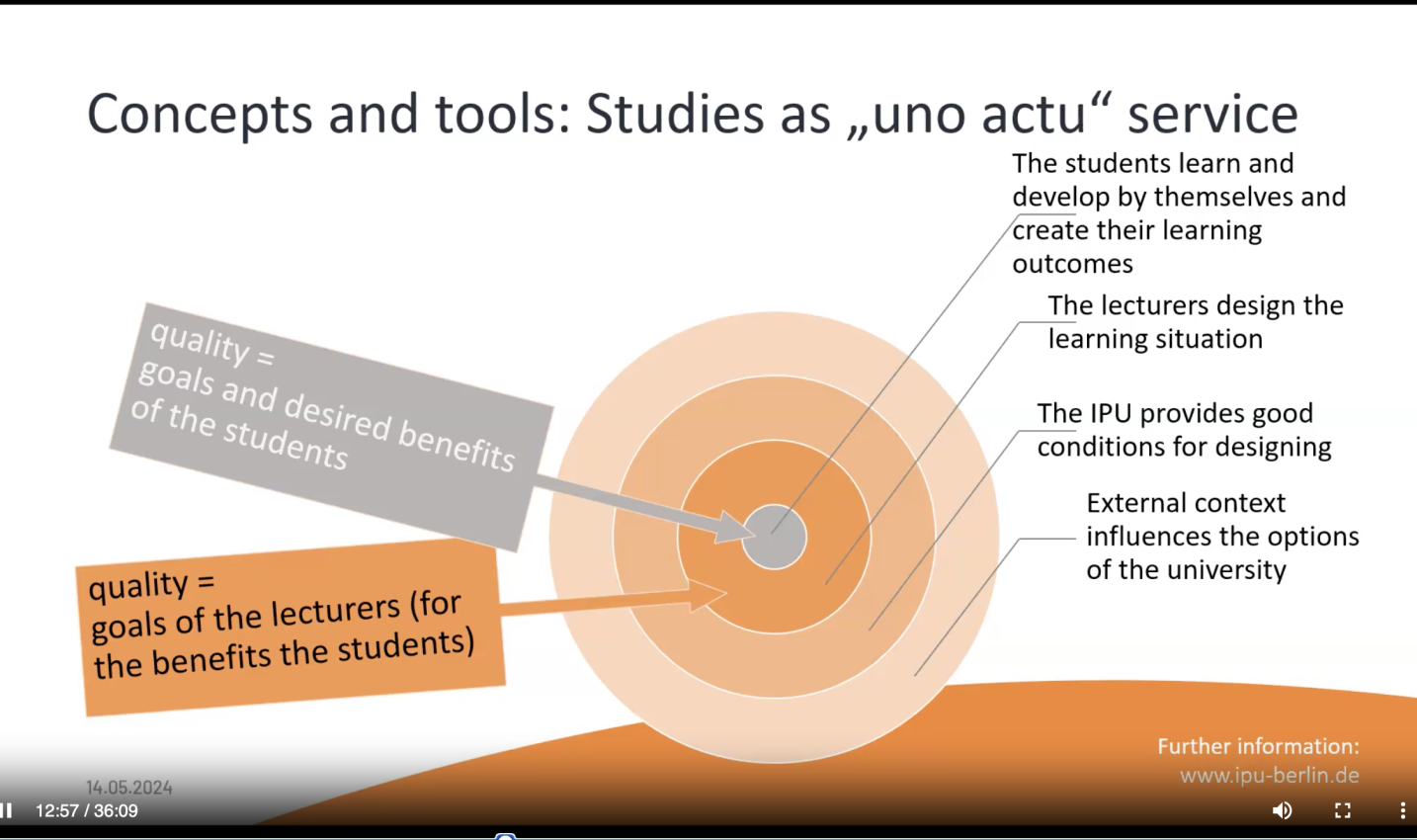
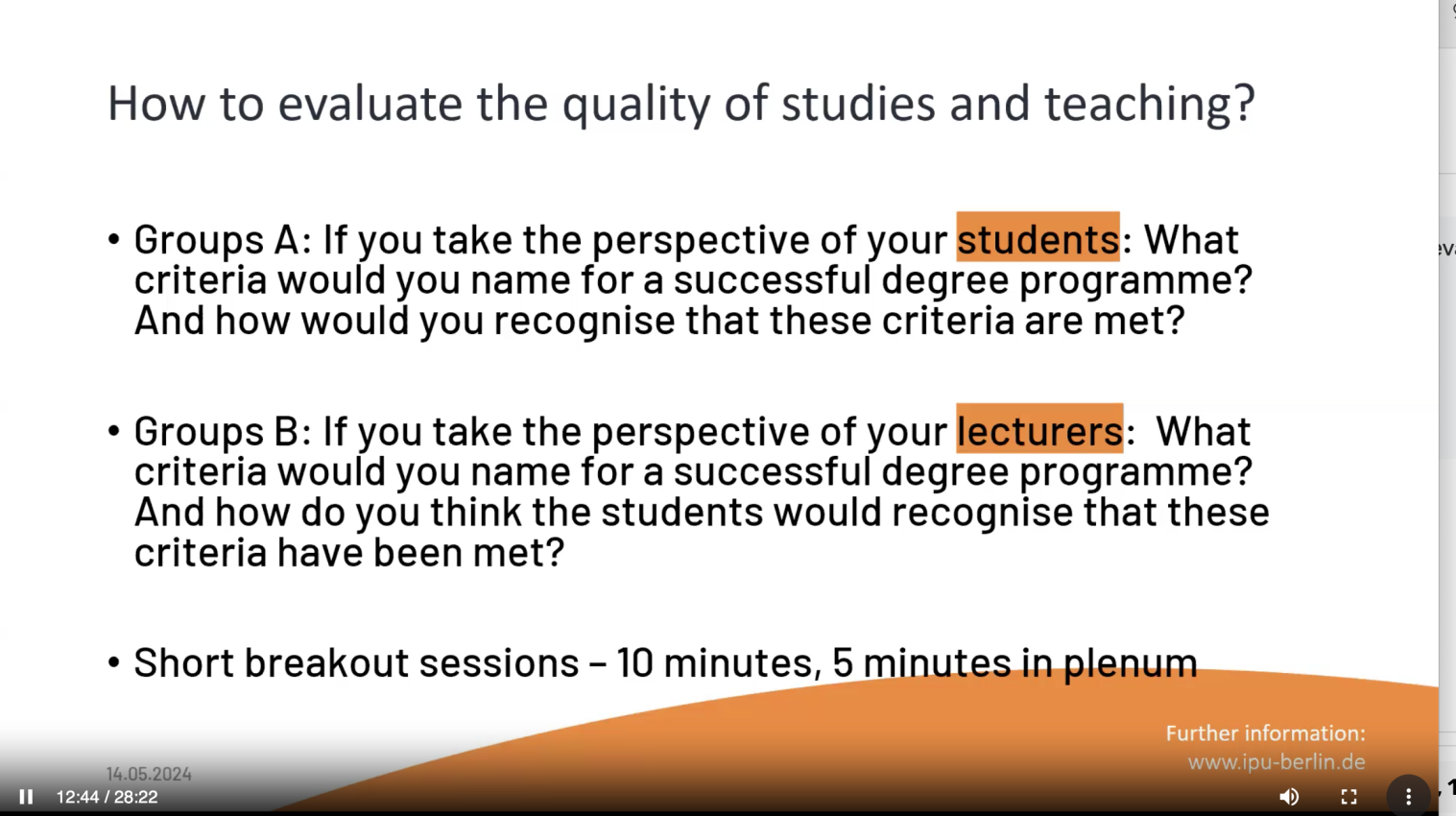
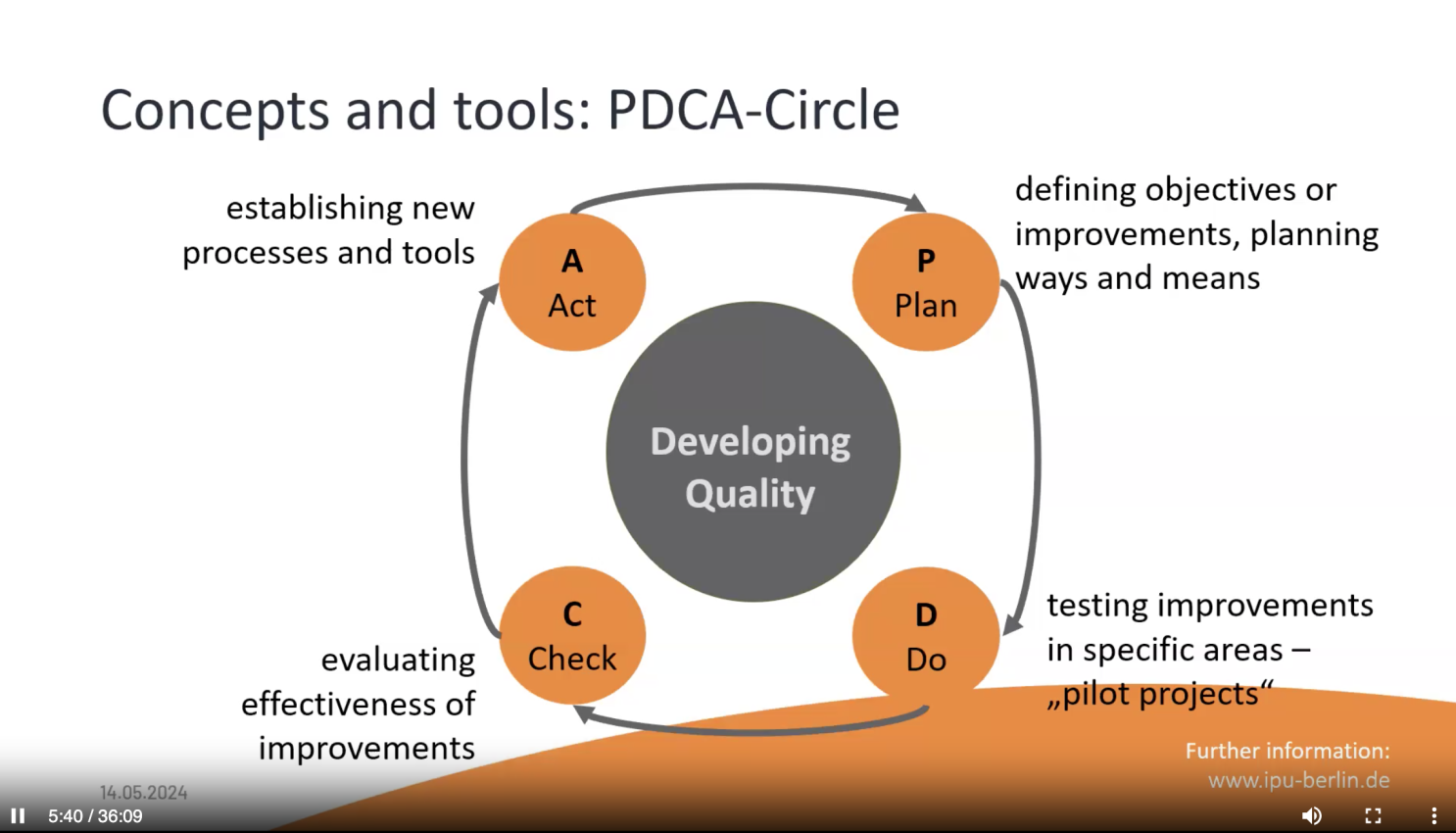
05/22/2024 Webinar 5. Online training support using the Moodle platform
Associate Professor of the Narva College of the University of Tartu Olga Burdakova spoke about the optimal course structure in the Moodle learning environment (at the Narva College of the University of Tartu), mandatory and optional elements of the course, how to design the "cover" of the course, determine the target audience of the course, write down the goals and learning outcomes of the course . The trainer showed the permanent rubrics in the course structure, lists of mandatory and additional literature, a description of the conditions for admission to the exam or credit, the form and content of the current and final monitoring of study results,
Training (preparatory) and control exercises in the educational environment, learning outcomes as a basis for developing exercises.
Special attention was paid to the assessment of the quality of the Moodle course and the criteria for course analysis.
05/27/2024 Webinar 6. Dissemination of experience in the development of MultiEd project courses
Iryna Zadorozhnya, a participant of the Erasmus MultiEd project, shared her experience in creating new and updating existing course work programs.
